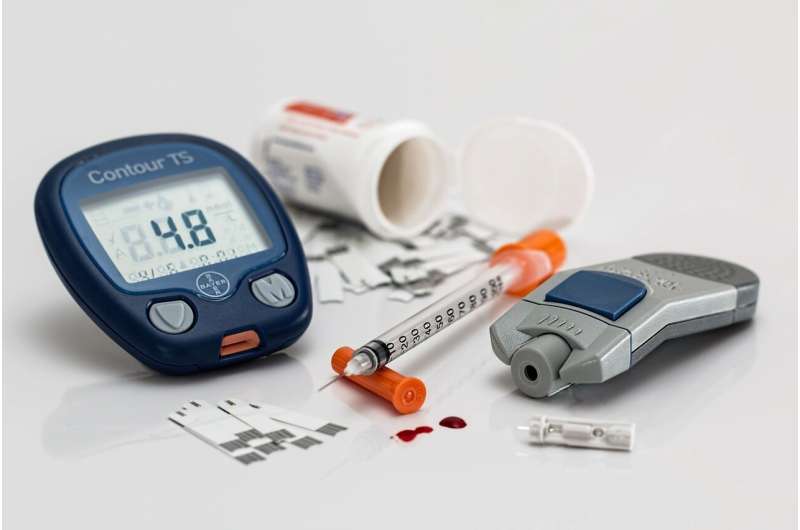Glucose levels linked to maternal mortality even in non-diabetic women

An elevated pre-pregnancy hemoglobin A1c—which measures average blood glucose concentration—is associated with a higher risk of adverse pregnancy outcomes even in women without known diabetes, according to a new study published this week in PLOS Medicine by Joel Ray of ICES and the University of Toronto, Canada, and colleagues.
Diabetes mellitus and obesity are both associated with adverse pregnancy outcomes but the relationship between pre-pregnancy A1c and severe maternal morbidity or maternal mortality is unknown. In the new study, researchers used data from the Canadian province of Ontario spanning 2007 through 2015. The study included data on 31,225 women aged 16 through 50 years with a hospital live birth or stillbirth and who had an A1c measured within 90 days before conception. 28,075 of the women (90%) did not have a known diagnosis of diabetes mellitus.
Overall, the risk of severe maternal morbidity (SMM) or death from 23 weeks gestation to 6 weeks postpartum was 2.2%. For each 0.5% absolute increase in A1c, the relative risk of SMM or death was 1.16 (95% CI 1.14-1.19, p<0.001) after adjusting for maternal age, multifetal pregnancy, world region of origin, and tobacco/drug dependence. Compared to those with a healthy preconception A1c (below 5.8%), the adjusted relative risk of SMM or death was 1.31 (95% CI 1.06-1.62, p=0.01) in those with a preconception A1c of 5.8-6.4% and 2.84 (95% CI 2.31-3.49, p<0.001) in those with a preconception A1c greater than 6.4%. Among women without a diagnosis of diabetes who had an A1c over 6.4%, the adjusted relative risk was 3.25 (95% CI 1.76-6.00, p<0.001).
The authors note that most women do not undergo A1c testing, which may have led to selection bias among the cohort. Additionally, pre-pregnancy body mass index was unknown for 77% of the participants. Therefore, the potential interaction between BMI, A1c and risk of SMM should be investigated further. Still, these findings have implications for pre-pregnancy health screening.
"Given its convenient and widespread use, A1c testing may identify those women with preexisting diabetes mellitus at risk of severe maternal mortality, in a manner similar to its current use in recognizing those at higher risk of fetal anomalies, preterm birth and pre-eclampsia," the authors say. "As there is no current recommendation about A1c testing in nondiabetic pregnant women, especially those with obesity and/or chronic hypertension, our findings may enhance research about the benefits of A1c screening in these women."
More information: Alexander J. F. Davidson et al, Risk of severe maternal morbidity or death in relation to elevated hemoglobin A1c preconception, and in early pregnancy: A population-based cohort study, PLOS Medicine (2020). DOI: 10.1371/journal.pmed.1003104




















